I beg you. Do not pre-order Star Wars Outlaws. That’s it, article over.
Jokes aside, I can guess that some of you may have seen that a Star Wars action-adventure game was set to be released, and the ol’ nostalgia brain chemicals may have fired immediately. Not to be a wet and crusty towel on your potential hope and excitement, but this news scared me for a few reasons.
Before we get into it, here is the story trailer for Star Wars Outlaws on YouTube:
There is vehicle/space combat, stealth gameplay, shooting, a branching dialogue system that impacts your in-game reputation, and, assumedly, a shitload of collectibles to grab. This casts a very wide net as if to grab as many potential buyers as possible, but let’s dive into why this is troubling.
I would also like to say that this article is more of a ramble than an investigative piece.
I did research and play many games; I am doing my best to be as fair as possible, but I may have misinterpreted things or gotten others plain wrong. Apologies in advance if that is the case, but let’s just view this article as closer to the ravings of a madman than a BBC news broadcast.
We’re very “vibe-based” in Flint’s world.
Reason 1: Star Wars Outlaws Is Published By Ubisoft
My, my, my; how the mighty have fallen. Just like your high school teacher told you as they surreptitiously slugged from their flask when you weren’t looking, every good expository piece has its strongest argument first, and this is definitely the thing that concerns me most.
Ubisoft used to be a bonafide star in the gaming industry, with multiple series of repute in their catalog. We had excellent games like Far Cry 3, Assasin’s Creed Brotherhood, South Park the Fractured Butthole, shit even Tom Clancy’s The Division 2 was acceptable.
However, in recent times, the shine on Ubisoft’s releases has faded, and frankly, their products have been all over the board, and they don’t have their shit together.
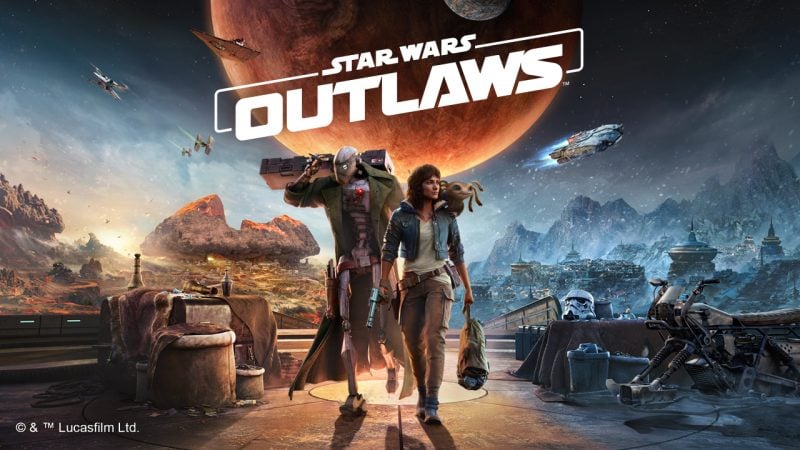
All images for Star Wars Outlaws were provided by Ubisoft.
Reason 1A – Introducing Ways To Lighten Your Wallet (Games As A Service)
As a veteran of Ubisoft’s Far Cry and Assassin’s Creed franchises predominantly (although I’ve dabbled here and there), I’ve noticed the evolution of these flagship franchises from amazing single-player experiences into games that incorporate systems to extract additional payments from players after they’ve already dropped $60 on a full game.
Looking at some recent examples: Assassin’s Creed Odyssey is a massive, sprawling game where you travel around the Greek isles completing quests and beating the crap out of a cult. There is a lot of content in the game, and while you can technically go just about anywhere, the enemies you will find in certain regions are scaled to ingame levels in terms of difficulty.
This means that if your character is level 5, doing a level 10 quest in a level 10 area may be almost impossible as you will simply not do enough damage to survive against absolute tanks of enemies.
Now, there are two ways to go about resolving this.
You can choose to do level-appropriate missions, side quests, and other filler content until you reach the recommended strata to actually play the mission in question, which obviously means more time running about and potentially not doing things you enjoy.
This is often quite slow. Alternatively, you can spend real-world money on experience boosts to speed things along.
Similarly, if you’re tired of scrounging metals to upgrade your gear (because it’s not enough to just have your character level up; your weapons and armor need to be improved, too), fret not.
You can also buy resource packs to get these crafting materials in bulk.
Yes, this is optional, but after playing Assasin’s Creed Odyssey to the end, I can tell you that they tried to make progress excessively tedious unless you did one of the two aforementioned things.
As a disclaimer, I LOVED Odyssey, but that’s because I like the exploration aspect, and turning over every rock I found did allow me to maximize my experience points, but not everyone is like me. The Greek mythology aspect also got my blood flowing, so it really was a personal love affair with the setting, too.
Just because my stupid ass loved it and was able to chug through miles of potential slog excuses nothing on Ubisoft’s behalf, though.
Very much in the same vein, Far Cry: New Dawn is a simple shooter set in post-apocalyptic Montana where if you’re tired of grinding for better guns or experience, you can pay real-world money in their cash shop to grab resources.
Again, it’s “optional” to even upgrade your guns, but if you have a blue weapon and you’re fighting a purple enemy, you might as well tickle their johnson, as you will do more damage that way than shooting them with an under gun.
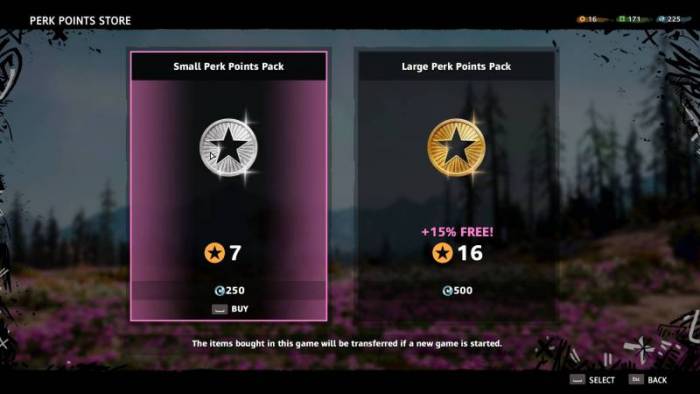
You can also pay real-world money for a fictional skill point in Far Cry New Dawn.
While I don’t think that incorporating a crafting mechanic is necessarily a terrible choice in adventure games, why would you include a way to circumvent the entire system by throwing your credit card numbers onto the screen … unless you WANT people to do that and subsequently make the experience more of a grind than needed to incentivize it…
This is all guesswork, but I’m basing this on Ubisoft’s track record. I expect there will be some cash shop for cosmetics and perhaps other components in Star Wars Outlaws, and I think this is a shameful business practice for an AAA studio.
What’s more, according to Kotaku, you will actually have to be online to install Star Wars Outlaws. Why would you need an online connection for a single-player action-adventure game? Perhaps it’s so they can collect your payments from their in-game cash shop?
Who knows, but it sets my hair on end.
Reason 1B: Weird Background Drama That Doesn’t Instill Confidence in the Company
I’m not an expert on this saga, but it’s too funny not to bring it up.
Assassin’s Creed: Black Flag was a groundbreaking game in the series that is many gamers’ favorite title in the AC library.
In it, you were set as a pirate, and this included an excellent ship-to-ship combat system. Ubisoft heard fan feedback and decided to begin development in 2013 of a new game called Skull and Bones that was based on that naval battle experience. It was JUST released earlier this year, and my god, it’s a dumpster fire.
Pretty much no one is happy with it for various reasons, and this piss poor experience can be largely blamed on a tumultuous development arc.
In a nutshell, the vision for Skull and Bones changed so many times over the years with new lead developers coming in and typical management “I know better than you” shenanigans that what they ended up releasing was a weird hodgepodge of mechanics in a Massive Multiplayer Online world that weren’t put together well, especially when you consider the $200 million investment over 11 years(!!) Ubisoft made it into it.
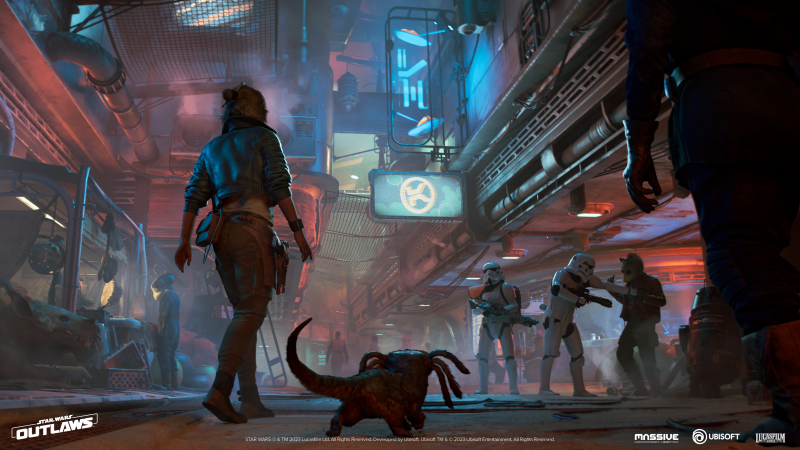
Even more hilariously, it has been reported that they couldn’t even cut their losses and axe the game early because they negotiated a deal with the Singaporean government to receive huge subsidies in return for producing it there. Utter clown show.
After reading online discourse, it seems that all they really had to do was take the Black Flag naval combat model and flesh it out with an updated engine and new content, but instead, fans were left disappointed with what they got.
Compounding this, by the time Skull and Bones was actually released, the pirate fad and interest had sort of died down, and another studio had released a similar concept in 2018 called Sea of Thieves, which by all accounts seems to be a superior product.
They simply had no market for it, and it still came up short of expectations.
Based on what you just read, does Ubisoft seem like a company that knows what the average gamer wants?
I’d say no, and that whoever was involved with the decisions of Skull and Bones not only didn’t understand the assignment but had a tenuous grasp of reality on top of that.
Reason 1C: Ubisoft’s Anti-Consumer Tendencies
I wholeheartedly believe that you need to design a game with your players in mind, and Ubisoft tends to do the opposite. In addition to everything I said in Reason 1A, Ubisoft has also tried to hamstring customers in other annoying ways.
For example, the most widely accepted PC video game retailer and platform is Steam, but Ubisoft has its own launcher called Ubiconnect. It is subpar in just about every way to the experience Steam has designed, but that doesn’t stop our boys at Ubisoft from trying their damnedest to drag you kicking and screaming into their hellscape of a client.
Assassin’s Creed Valhalla, for instance, was released on Ubiconnect a full two years before Steam, and when it finally came to Steam, minimal effort was put into making it a streamlined experience, and perhaps most noticeably, it didn’t and still doesn’t support Steam achievements.
This seems to be a calculated move to make the experience worse on a competitor platform to the detriment of their fanbase. However, I’d argue that Ubiconnect is so garbage that the Steam client still wins out despite these artificial limitations.
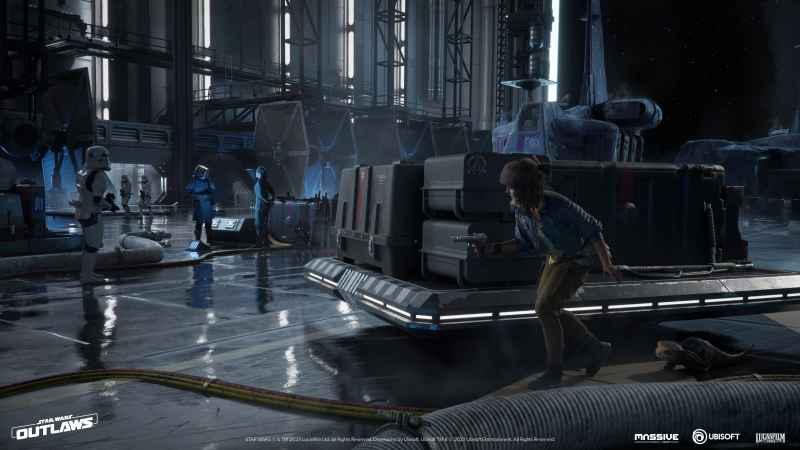
Lately, Ubisoft has been exclusively launching simultaneously on another platform called the Epic Game Store, but I suspect that’s because Epic offers large incentives for exclusivity rights. Hell, their latest Assassin’s Creed game, Assassin’s Creed Mirage, isn’t even coming to Steam at all and will remain on the two lesser platforms.
Regardless of the client, you must always log in to a Ubiconnect account while playing a Ubisoft game. It just … lurks in the background like an overeager middleman at a sex toy convention.
Now, I don’t know which executive has “Increase Ubiconnect users by X%” on their KPI sheet year after year (right next to “Inhale more petroleum fumes like a goddamn degenerate”), but this is the wrong way to go about it.
Design a better platform, and people may use it; what a novel concept.
When discussing anti-consumer practices, we also have to talk about Day 1 DLC. This is more of a criticism of the gaming industry as a whole, but Ubisoft is a well-known contributor of this filth to the online marketplace.
The concept basically runs that seemingly every new game that comes out needs to have some sort of Season Pass that provides additional story missions/content, in addition to some cosmetics you’ll probably never use. These can be purchased in some sort of Deluxe Edition on launch for a 30-70% increase in cost, depending on what is being offered.
So my comment on Day 1 DLC is that they’ve already designed the content, and it could very well have been part of the base game, but they’ve artificially pay-locked it behind some arbitrary barrier just so they can squeeze a few more bucks out of you.
It’s borderline predatory, but don’t worry — the most expensive packages often include a digital art book nobody ever reads.

The digital art book is probably filled with shit like this.
Back to Ubisoft specifically: In recent history, Denuvo was installed through a dirty backdoor into Assassin’s Creed Mirage without Ubisoft telling people about the situation.
Denuvo is controversial anti-tamper and anti-cheat software that, through nebulous methods, prevents people from cracking games and modifying or copying them. In theory, that sounds fine, but gamers have expressed a dislike for the software.
This can be attributed to a few reasons, one being that despite Denuvo claiming otherwise, there is a correlation between the incorporation of Denuvo software into a game and a stark drop in-game performance.
YouTuber Overlord Gaming posted a video on this in 2018 and found a ton of discrepancies in things like Framerate and load times when Denuvo was installed versus when it wasn’t.
If you are interested, you can watch that video now.
There’s also scuttlebutt around the fact that Denuvo requires online verification periodically to ascertain that your game is a legitimate purchase, but this relates to a larger argument about whether a consumer genuinely owns a game they purchase digitally if they can be locked out of it remotely at any time.
That’s a whole other can of worms, so we can get into that at a later date.
How much weight you put on Denuvo being bad aside, the shady part of this anecdote is that Ubisoft secretly installed it into Assassin’s Creed Mirage in a Day 1 patch WITHOUT mentioning it in the patch notes.
Such a controversial subject would undoubtedly have altered some customers’ purchasing decisions, but installing the update in such a sneaky way after launch meant that most major reviewers didn’t mention Denuvo’s presence, as they were likely unaware of it when they wrote their content.
It’s a snakey move, but to be honest, I’m not that surprised. Whether you’re a Denuvo hater or not, you have to admit this is sus on principle.
These are just examples off the top of my head, but the point I’m getting at is that Ubisoft as a company gives the impression that they do not give two solitary shits about the customer.
You are, at best, a statistic on their quarterly report, and do you think Star Wars Outlaws will be designed with a different attitude?
Reason 1D: Engine/Gameplay Seems Dated
There are still five or so months until Star Wars Outlaws’ release, and in standard fashion, the publisher released a Gameplay trailer as part of their marketing push.
The Division series is a third-person shooting game in which you blast the hell out of myriads of enemies, but ironically, I never felt the shooting in those games was all that spectacular.
What strikes me about the Star Wars Outlaws trailer is that despite the Star Wars overlay, it really does not look that innovative or interesting.
The only key moment I thought was unique was a quickdraw blast on an enemy before a lengthy gunfight begins, but I am uncertain if that is a gameplay mechanic or a scripted cutscene with button inputs.
The character doesn’t seem to move that smoothly, and the shooting doesn’t seem that tight. The vehicle driving/fighting seemed bland, and the starship combat seemed even more so.
Enemy AI looks wildly inconsistent, with some foes taking cover properly but others sticking their asses right out from behind a barrel as if primed and ready for a laser enema.
Human character models seem to have a perpetual blank stare that actively detracts from their ability to portray emotions realistically. Of course, they included a fluffy pet in your starship cockpit because that’s what everything needs now: a cute companion to steal the show.
While a 10-minute pre-launch trailer does not tell the whole story, I wasn’t impressed with anything at all.
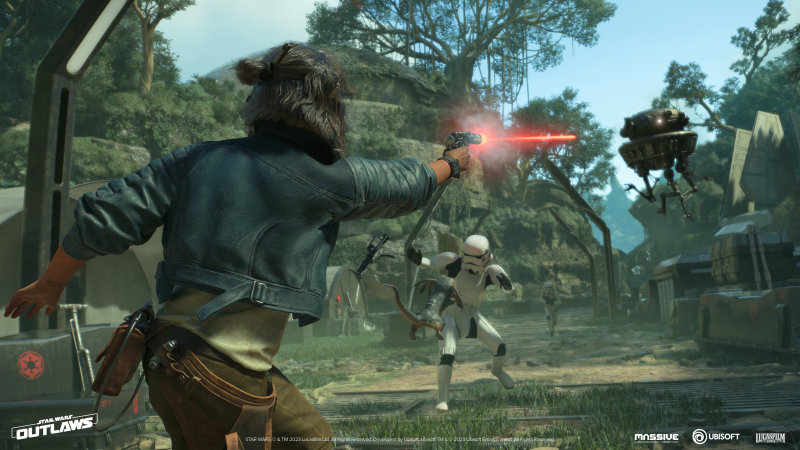
Reason 2: Star Wars Is a Buzzword That Regularly Disappoints
In recent memory, has a big-budget Star Wars experience from cinema, TV, or video games that has blown your socks off? Maybe one or two, but by my estimation, it’s a veritable minefield of horrendous additions to a historic franchise.
The Mandalorian was good; Rogue One was solid; Kenobi might be okay, but what else really is there?
As I mentioned in my Star Wars Jedi: Fallen Order review, there is a reason it’s consistently on discount for $5 these days, and that reason is big budget studios/publishers/developers seemingly rely predominantly on nostalgia to sell these products as opposed to being creative with the source material.
It was a poorly thought-out, bland experience that was only borderline palpable ‘cuz of the Star Wars backdrop.
Raise your hand if you watched Star Wars: The Force Awakens and rolled your eyes that there was another planet-killing superweapon that needed to be destroyed [raises hand].
They couldn’t have thought of another idea?
A lot of that ethos is running rampant through Star Wars products.
Given all that I’ve said in the various Reason 1s, I do not have much confidence that a company with Ubisoft’s approach to game design would be making an effort to create something that meaningfully pushes the boundaries.
They may just mail it in and bank on people with Wookie fetishes throwing their wallets at the computer.
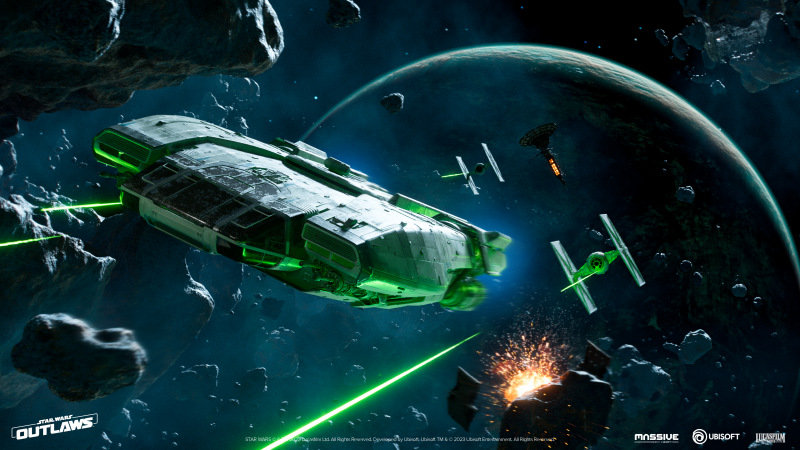
Reason 3: The Track Record When You Pre-Order Games Is Less Than Stellar
Brother, it’s a dog-eat-dog world out there.
It’s arguably easier than ever to pump out games, so it makes sense that studios are shortening their launch timelines to remain in the public eye in this world of heavy competition.
However, what has become of that is a noted drop in launch day quality for titles that receive all the hype in the world by marketing teams assumedly chained to their desks, blasting out promotional materials for all the world to see.
It’s like a classic love story: The game gets hyped, fans get excited, developers get squeezed, people buy pre-orders, the game launches with issues, studios deploy patches to fix problems, and problems rarely get solved.
When you pre-order a game, you’re at a fundamental level providing the company with money for a promise that they won’t dump a pile of shit on your doorstep and bid you adieu.
They are under no real obligation to fix anything, nor are they incentivized to make improvements because, hey, they already have your money. It’s the Nigerian Prince bank account scam all over again.
While this strategy does sometimes work out with companies going the extra mile to enhance games post-launch, I find that the sheer number of subpar launches and the subsequent disappointment of players leads to the conclusion that pre-ordering games, as a whole, in the year of our Lord 2024, isn’t a viable financial decision.
Take Arkane’s Redfall, for example.
Arkane had a track record of making wonderful games like Prey and Dishonored 1/2, so naturally, everyone was looking forward to a vampire co-op game they were producing. Pre-orders ensued, and upon launch day, people were pissed.
Nothing about Redfall ran well, and many critics said it was one of the worst games they’ve played in recent memory.
Even after a year or so of updates, Steam commenters have been relentlessly hating on it, with even positive reviews saying, “I got this on a deep sale and it’s fine, not worth $70 though”.
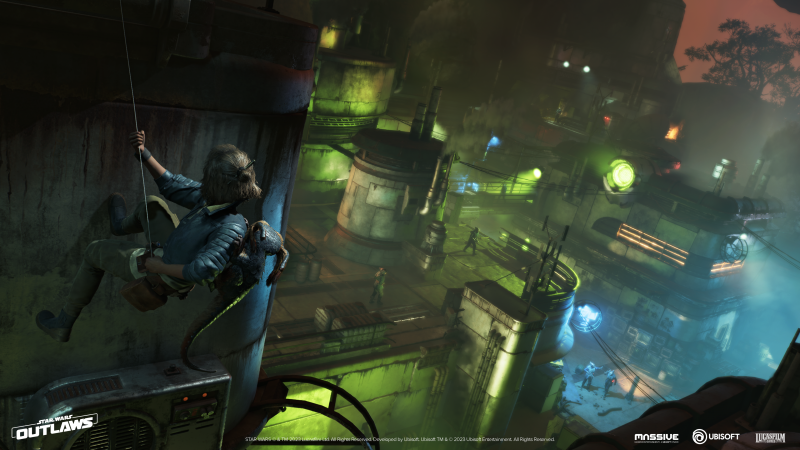
Take the Warner Bros Suicide Squad game that launched the other day. The publishers of the Batman Arkham games and the Shadow of Mordor/War titles, man, this group was cooking with gas for a few years, producing absolute bangers left and right.
They released a shoddy game called Gotham Knights (which could be another entry on this list, tbh), but people were hoping they learned something from that and were gearing up for Suicide Squad: Kill the Justice League to launch.
Pre-orders were available for $70 or $100, and now, barely two months after launch, the game has around 900 concurrent players at most during peak weekend gaming hours, and this number has been dropping every week.
For context, this is garbage.
What’s more, people STILL pre-ordered it despite an absolute mudslide of bad press leading up to launch day.
Take Capcom’s Dragon’s Dogma 2, which also launched the other day.
Reviews were incredibly positive, but PC players, in particular, who had pre-ordered were less than thrilled when not only did the game perform like a turtle in a sprinting event, but Capcom had also slid in surprise microtransactions where you can pay for rare in-game items with real money.
This is a minimum $70+ game, mind you, that runs so awfully that players have actually started killing non-player characters, so the frame rate improves as the game has less shit to keep track of and control.
Unlike the previous two examples, DD2 is not a bad game at its core, but I think if people knew ahead of time that microtransactions or bad performance were in store for them, quite a few probably would not have dropped that much money on it.
These are just three examples from studios of repute that have happened recently. This isn’t their first rodeo; you may say they should have known better, but clearly, they didn’t care.
All of these games have been receiving patches and updates, but that hasn’t changed the fact that what was launched as subpar remains subpar.
Reason 3: The Price of Star Wars Outlaws Is Insane for What You Get
Let’s take a gander at what you can get here. According to Ubisoft’s website, there are three editions of Star Wars Outlaws: Standard for $69.99, Gold for $109.99, and Ultimate for $129.99 (Jesus f*cking Christ!).
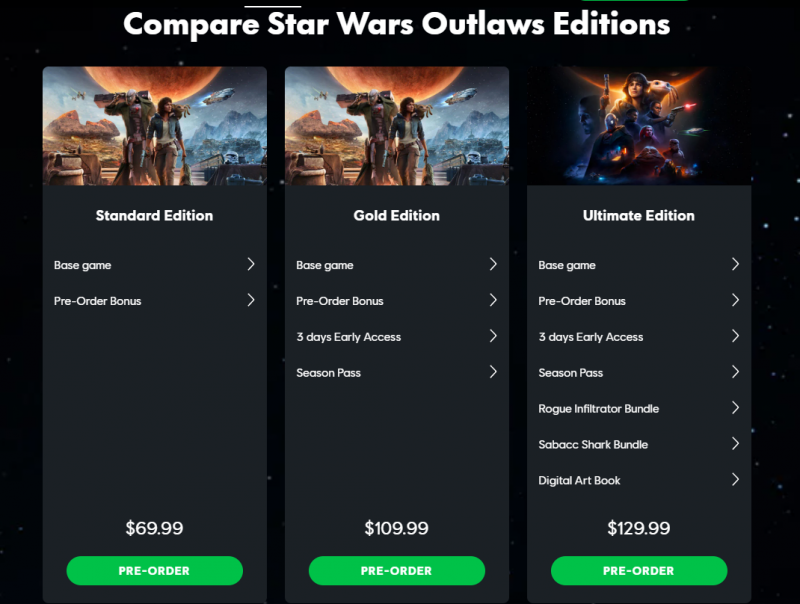
Where do I even begin breaking this down? Just like a CEO’s son coping with literally anything, I guess—line by line.
All these editions come with a pre-order bonus that is just cosmetics, so who cares?
Gold Edition adds three-day early access, which is exactly what it sounds like. I cannot imagine paying more money to play this three days ahead of everyone else for clout, but maybe that’s just me.
The Season Pass provides automatic access to two yet-to-be-announced post-launch DLC, an exclusive mission available at launch, and more cosmetics.
The Ultimate Edition has all that but also TWO more cosmetic bundles and a digital art book. This has got to be a joke, right?
Not to sound all “back in my day,” but I remember a time when video games were $30-40, and they included everything.
The industry, as a whole, is engaging in this poisonous business practice, and I can only assume/hope that eventually, gamers will say enough is enough.

Patience is a Mother F*cking Virtue
Look, I’m not here to tell you how to spend your hard-earned dollars. You are more than free to buy whatever you want when you want, but I am preaching caution when it comes to Star Wars Outlaws.
The reason publishers and developers have been engaging in this high-cost, piecemeal, slip-shod “release it now, we’ll fix it later” bullshit is that people are nonetheless still buying these things at whatever exorbitant fee these corporations throw out there.
All I’m really saying is that if you want to buy Star Wars Outlaws (scheduled to release on August 30th, 2024), I’d recommend that you wait until it launches and see if it’s good.
To be clear, Star Wars Outlaws could be INCREDIBLE, but I think we need to be reminded that part of being human is having self-respect; in this case, a wait-and-see approach may be prudent.

Be the first to comment on "DO NOT Pre-Order Star Wars Outlaws"